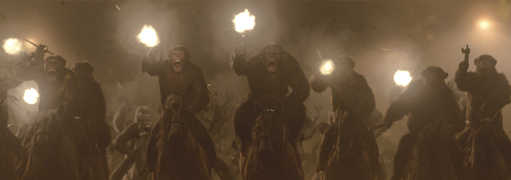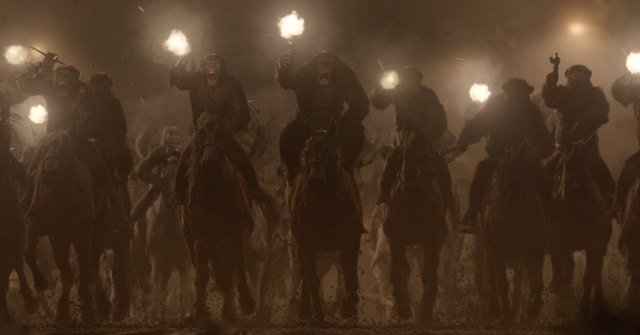Film Review: Dawn Of The Planet Of The Apes
Apes + Machine Guns = Awesome


This is what we call the money shot.
Latest Article|September 3, 2020|Free
::Making Grown Men Cry Since 1992


This is what we call the money shot.